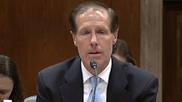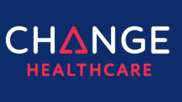| This Week’s News | Four states held primary elections on May 8, kicking off a busy election season that will see most Tuesdays from now until mid-September having one or more states’ voters casting ballots. Judging by the latest poll from the Kaiser Family Foundation, healthcare will be a major issue for many in the coming months. Four states held primary elections on May 8, kicking off a busy election season that will see most Tuesdays from now until mid-September having one or more states’ voters casting ballots. Judging by the latest poll from the Kaiser Family Foundation, healthcare will be a major issue for many in the coming months. | | |
| Nearly a year after it was first announced the Department of Veterans Affairs would be replacing its in-house electronic health record (EHR) system with a Cerner platform, the contract hasn’t been finalized. A senior VA official now says the agency’s acting chief has set a deadline of Memorial Day—May 28—to make a decision on the acquisition. Nearly a year after it was first announced the Department of Veterans Affairs would be replacing its in-house electronic health record (EHR) system with a Cerner platform, the contract hasn’t been finalized. A senior VA official now says the agency’s acting chief has set a deadline of Memorial Day—May 28—to make a decision on the acquisition. | | |
| After reporting nearly $18 million in savings for the employers current participating in its bundled payment programs for spinal surgeries and joint replacements, UnitedHealth Group announced it will expand the program to nine additional markets. After reporting nearly $18 million in savings for the employers current participating in its bundled payment programs for spinal surgeries and joint replacements, UnitedHealth Group announced it will expand the program to nine additional markets. | | |
| When hospitals enjoy a monopoly in their market, their prices for privately insured patients are 12.5 percent higher on average, according to a study encompassing 88 million people covered by Aetna, Humana and UnitedHealthcare. The differences disappeared when consolidating facilities were located more than 25 miles apart. When hospitals enjoy a monopoly in their market, their prices for privately insured patients are 12.5 percent higher on average, according to a study encompassing 88 million people covered by Aetna, Humana and UnitedHealthcare. The differences disappeared when consolidating facilities were located more than 25 miles apart. | | |
| Looking at the transition in leadership at 490 hospitals, a study found 82 facilities chose a new chief executive from among their existing C-suite leaders, while the vast majority—408 hospitals—went with an outside hire. Looking at the transition in leadership at 490 hospitals, a study found 82 facilities chose a new chief executive from among their existing C-suite leaders, while the vast majority—408 hospitals—went with an outside hire. | | |
| “For the first time, CMS is organizing and focusing our efforts to apply a rural lens to the vision and work of the agency,” CMS Administrator Seema Verma, MPH, said in a statement. “For the first time, CMS is organizing and focusing our efforts to apply a rural lens to the vision and work of the agency,” CMS Administrator Seema Verma, MPH, said in a statement. | | |
| The potential of genetic testing for chronic disease is substantial—and these possible positives are understood by many primary care providers (PCPs). Still, many feel unprepared to deal with patients at high risk for such conditions, while others questioned their ability to interpret genetic testing results. The potential of genetic testing for chronic disease is substantial—and these possible positives are understood by many primary care providers (PCPs). Still, many feel unprepared to deal with patients at high risk for such conditions, while others questioned their ability to interpret genetic testing results. | | |
| In her remarks at the American Hospital Association’s annual meeting, CMS Administrator Seema Verma, MPH, offered some criticism of current accountable care organizations (ACOs) that haven’t taken on downside risk, hinting those payment models may be targeted by CMS regulations. In her remarks at the American Hospital Association’s annual meeting, CMS Administrator Seema Verma, MPH, offered some criticism of current accountable care organizations (ACOs) that haven’t taken on downside risk, hinting those payment models may be targeted by CMS regulations. | | |
| Nashville, Tennessee’s Change Healthcare has announced a collaboration with tech giants Microsoft and Adobe on a new patient engagement solution—one that Change promised would unite “engagement orchestration proven to work in consumer marketing with industry leading healthcare IT across the continuum of care.” Nashville, Tennessee’s Change Healthcare has announced a collaboration with tech giants Microsoft and Adobe on a new patient engagement solution—one that Change promised would unite “engagement orchestration proven to work in consumer marketing with industry leading healthcare IT across the continuum of care.” | | |
| Kansas’s proposal to impose a three-year lifetime limit on Medicaid benefits has been formally rejected by CMS, with Administrator Seema Verma, MPH, saying the agency has to ensure the program “remains a safety net for those that need it most.” Kansas’s proposal to impose a three-year lifetime limit on Medicaid benefits has been formally rejected by CMS, with Administrator Seema Verma, MPH, saying the agency has to ensure the program “remains a safety net for those that need it most.” | | |
| |
|
| ![]() | |
|









